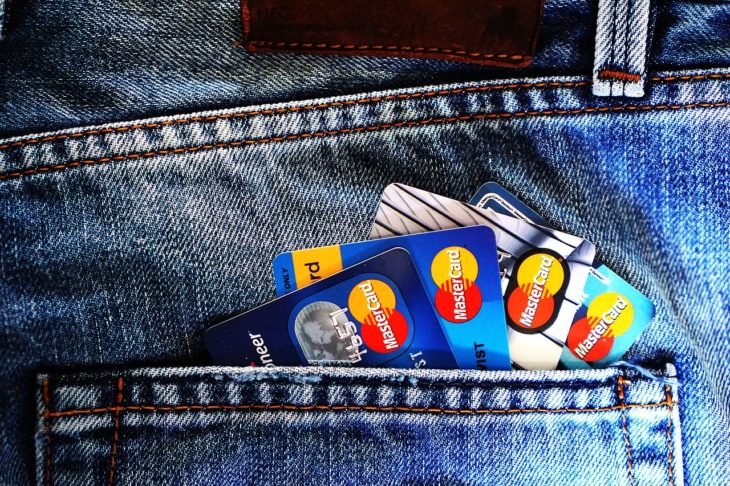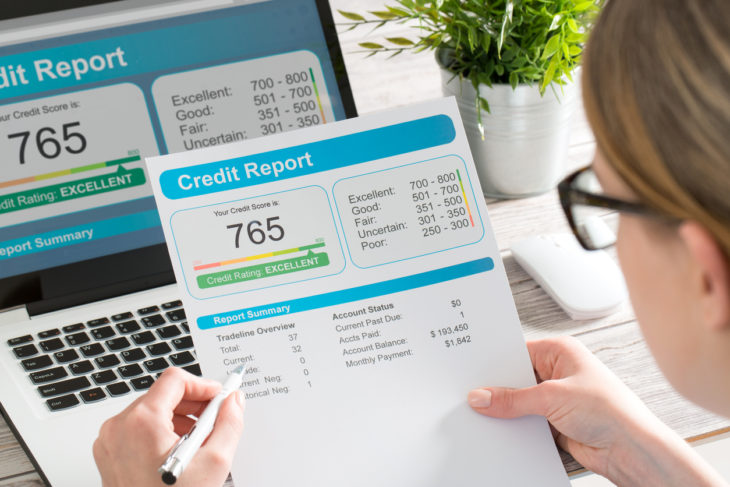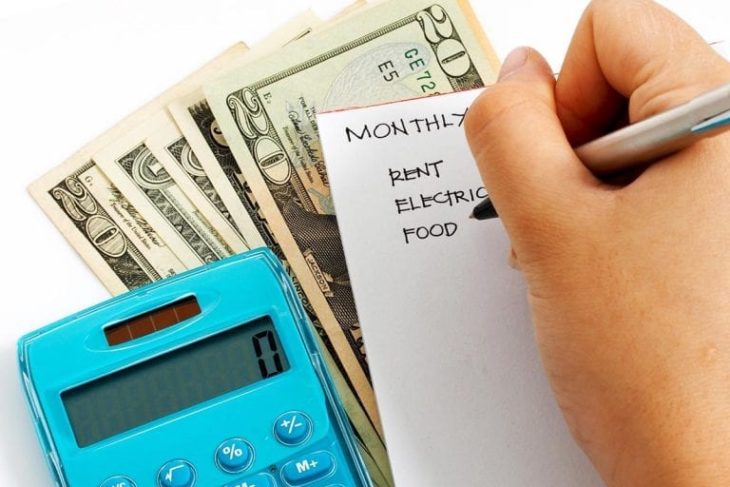As soon as I was pushed out of the college womb into the harsh light of day, I discovered I had a really big problem: I was a complete financial idiot. How did I miss the memo on how to support myself as an adult? I was raised in a middle-class family where both of my parents worked. I never was denied anything I needed, yet I wasn’t spoiled. I worked as a teenager, but mostly used my money to buy clothes and CDs. I attended a prestigious private university in New York City on a partial scholarship and worked during college to make up for the difference. I was always a good student who got good grades. My point: I assumed that I knew what I needed to know to be a reasonably financially successful adult.
Whether you have a secured card or a regular card (I can’t stress this enough), pay your balance off in full every month. Do you really want to waste your money on interest?

Source: AdobeStock
Post-college I was pursuing a career in acting (not the most practical, I know) and not bringing in much regular income. I was working odd jobs (too ridiculous to speak of), going on auditions (also too ridiculous to speak of), crying every time I saw my bank balance, and hitting up mom and dad for “temporary loans.” They weren’t finding my constant need for money very cute and I was starting to get embarrassed about asking. Six months later … the bills started rolling in. Citibank wanted me to pay $1,000 for student loans and Chase another $800! What? Were they crazy? I didn’t have a job! I laughed and tossed the bills under my bed. They continued to come. I didn’t know what to do and I was too overwhelmed to try to figure it out, so I kept ignoring them. Then I started charging up the one credit card I had. Only problem? I didn’t have the money to pay it off. And then I began incurring late fees. When I called the credit card company to get a credit line increase, they denied me.

Image by TheDigitalWay from Pixabay
My hubris took over and I canceled the credit card. I would just open another one, right? Wrong! No credit card company would accept my application on the basis that my credit score was too low. What? How should I know what my credit score is? Apparently, if you don’t pay your credit card bills on time and ignore your 14 separate overdue student loans, it really screws up your credit. I had hit financial rock bottom and I was only 22. How could this have happened to a smart, soon-to-be successful girl like me? Well, I guess I never asked any questions and no one ever offered me any information. (Please don’t judge my idiocy. I’m only sharing this embarrassing tale in the hopes that someone out there can benefit from my ignorance.) So, what did I do to remedy the problem? I decided to take my financial well-being seriously. I’m not gonna lie; it took about five years. But I kept my goal in mind: financial peace. Here’s what I did to get back on track:
Contents
Consolidate Or Defer Your Debt

Source: thisismoney
Instead of throwing student loan bills under your bed, it’s much better to deal with those bills before they go into default on your credit record. If you are going back to school or serving in one of many government-sponsored programs (like the Peace Corps), you may be able to defer your student loans. That means you don’t have to pay them for a set period of time and they won’t accrue any interest. If you are working, I recommend consolidating loans and starting to pay them. There are tons of companies and lenders out there that can help you through the fairly painless process of consolidation. You can pick a long-term repayment plan that won’t break your bank. My payments went from $1,800 a month to $200 a month. After four years of on-time payments, they reduced my interest rate, and my payments went down to $180 a month. A bonus: you also get a tax credit for student loan repayment.
Budget, Budget, Budget

Source: PCWorld
Learning how to budget is essential and not as hard as you may think. That doesn’t mean hiding a $20 under your mattress so you can buy some Ramen noodles when you are starving to death. First, figure out how much money you have coming in each month. This does not mean how much income you’ll have if you win the lottery next week. Make sure the number is accurate. If your income is irregular, estimate on the lower end of the spectrum. If you make extra that month, bonus! Then itemize all of your monthly expense on a spreadsheet including expense, amount, and due date. Be organized about it. Monthly expenses should include rent, food, electricity, car, student loan payments … basically every single thing you spend money on. Don’t forget to include a line item for savings and any big expenses that you know are coming up that month (like a vacation or a wedding). Add everything up and compare what you have coming in to what you have going out. The two numbers should match up. If they don’t, you need to either: a) make more money or b) cut something out of the budget. We’ll talk about that more in a minute.
Work That Credit Score

Source: iStock
You can get copies of your credit reports and find out your credit scores for FREE! Woo-hoo! Make sure to check all of them – FreeCreditScore.com, Equifax, Experian, and TransUnion—as they may vary slightly. These credit scores determine your ability to get credit cards, car loans, or home loans. You don’t want to screw them up! It takes seven years for one black mark on your credit report to go away. Even an overdue bill that goes to a collection company can show up on your reports. In the event that there is something faulty on your credit report, you can contest it with the reporting companies and possibly get it removed. Your goal is to get that credit score as high as possible. A high credit score affords you many financial options.
Be Credit Card Savvy

Source: Pinterest
Stop getting screwed over by credit card companies. Decide to fight back. It’s good to use (but not abuse) a credit card. Look for a credit card with a low interest rate. If you are in a credit rut like I was, and all the companies are turning you down, you can apply for a secured credit card. That means you give a deposit on the card as collateral. Whether you have a secured card or a regular card (I can’t stress this enough), pay your balance off in full every month. Do you really want to waste your money on interest? Only charge what you can pay off – a tank of gas, groceries. Think of your credit card as a way to build your financial credibility, not as free money for that flatscreen TV. Beat the credit card companies at their own game. After a year of paying on time, you can call your credit card company and ask for your interest rate to be reduced and your credit limit to be increased. Believe it or not, it works! If you are drowning in credit card debt, there is help. You can consolidate the debt into one monthly payment and begin to get the problem under control.
Embrace Bill-Paying Time

Source: Cash Essentials
Make monthly bill time as fun as possible! Play music, make a margarita (easy on the tequila, though), and set aside a regular time each month to pay your bills in order to get them out consistently and on time. If you’ve budgeted properly, you should always have enough to pay your bills. They should be your financial priority. Think of bills as a chance to show your financial integrity rather than a way to drain your bank account.
Track Your Spending

source: getmeabettercar
If you’re overspending, find out why. Save your receipts and at the end of every week, figure out what you’re spending on. You may be surprised to see that you spent $500 on month at Starbucks. This will help you to become more conscious of your spending.
Make Some Decisions

Source: usnews
If your budget isn’t matching up, it may be time to make some tough decisions. Ask yourself, “Do I really need this?” “What do I choose to spend my money on?” Until you’re rolling in dough, you might decide to make your coffee at home and save about $450 a month. And do you really need premium cable for $200? You call the shots, but make some decisions about what your financial goals are. One of the ways I saved money for the last 13 years is by foregoing cable. Yup, I have chosen not to have cable since I moved out of my parents’ house when I was 17. It’s just not important to me. I choose travel over cable.
Save For A Rainy Day

Source: hercampus
Reality check: you must save your money. This is crucial to achieving financial stability and peace of mind. Life is unpredictable and you never know what expenses will pop up, so you need to know you are covered no matter what. I recommend always having at least three to six months of income in your savings account at all times and allotting about 10 percent of your monthly income to savings. Open a high-interest savings account, money market, or CD and drop in ten percent of every paycheck and forget about it. Just do it. It totally works.
Think About Retirement

Source: StrategieFinanz
I know we are young and sexy and not thinking about old age. But we have to. Open up an IRA or 401K if your company offers one. Do it ASAP. Just think, the earlier you start, the more you’ll have in there when you’re old.
Develop A Healthy “Money Soul.”

Source: fool
The grad school I attended said to us on the first day of class, “Money reflects the state of your soul.” Profound, no? How you handle money says a lot about who you are as a person, so do your best to develop good habits and build a healthy relationship with money. Having a good “money soul” gives you a sense of peace. So be generous, yet deliberate, always pay on time, live within your means, and be grateful for what you have. It will make you a better, more peaceful person.
Original by Ami Angelowicz
